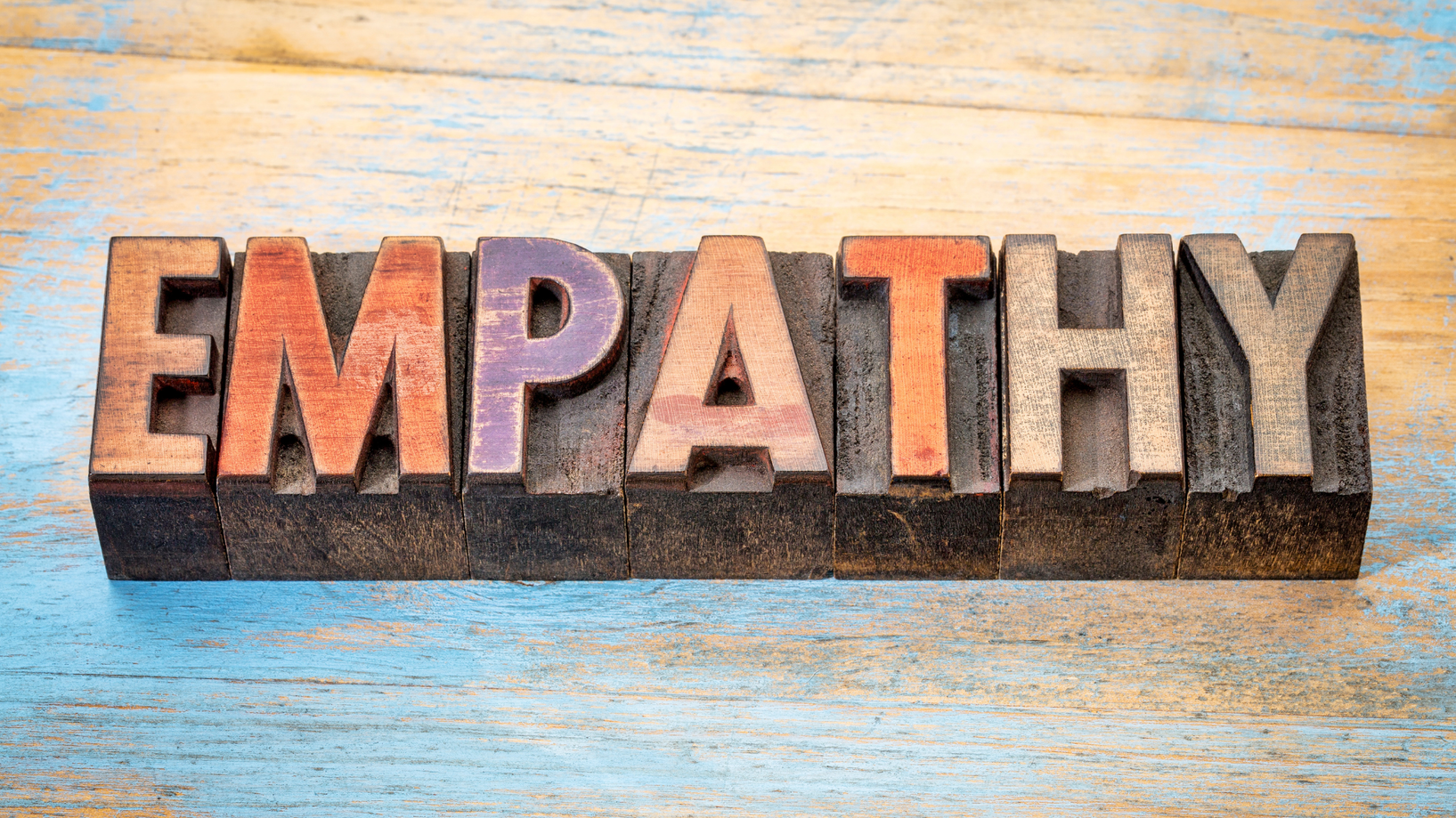Empathy vs. Empath: Why Feeling Doesn’t Make You a Doormat

We live in a world with alllll kinds of people. Some just make you feel good by being around them. Some have a quiet presence that somehow brings you peace. Some are kind and thoughtful. And others… well, not so much.
Most of us can feel the vibe of the people around us and we respond to it on an emotional level. That’s empathy - our natural ability to understand and share the feelings of others. It’s part of what makes us human.
Some people are incredibly sympathetic, and feel it deeply when someone tells them something emotional or they see that someone is in pain.
But here’s where things get murky…
Not long ago I heard someone who is feeling hurt and angry by another person’s behaviour say, “Its because I’m an empath.” And while I truly believe some people do experience life that way, I also think the word gets overused - sometimes even as an excuse to tolerate toxic behaviour or carry emotional baggage that isn’t ours.
So, let’s clear it up: empathy is almost universal. Sympathy is fairly common. “Empath” is something else entirely.
The Science of Empathy
Empathy isn’t magic. It’s sort of default brain wiring for most humans (and some other species too). Neuroscience shows that our empathy is triggered by cues like facial expressions, tone of voice, and body language (Decety & Jackson, 2004).
Researchers break empathy into three types:
- Cognitive empathy: understanding what someone else is going through.
- Affective empathy: actually feeling their emotions alongside them.
- Somatic empathy: physically mirroring their feelings (like wincing when someone stubs their toe).
All of this is because of something called mirror neurons - brain cells that fire not only when we act, but when we see someone else act (Rizzolatti & Craighero, 2004). These neurons, along with the amygdala and other parts of the limbic system, create a lightning-fast emotional radar that helps us connect, learn, and has been instrumental in our survival as a species.
In other words: empathy is a normal human baseline.
So if empathy is universal and brain-based, where does this idea of being an ‘empath’ actually come from?”
Here’s some fun trivia for you. The word “empath” didn’t come from psychology at all.
It first appeared in a 1956 science fiction story by J.T. McIntosh called The Empath. From there, pop culture ran with it like the last Twinkie in the box: Star Trek in the ‘60s, Ursula K. Le Guin’s writing in the ‘70s, and even Marvel Comics in the ‘80s with a character literally called “Empath”.
Somewhere in the 1980s the term started to show up in psychology conversations (but it’s still not a clinical diagnosis today - at best, it’s a descriptive label for people with strong empathetic ability).
So when someone says, “I’m an empath,” they’re using a term with more roots in sci-fi and the metaphysical spirituality movement than science.
Empathy vs. Empath: A Quick Litmus Test
So how do you know if you’re simply very empathetic, or more in line with empath territory? Ask yourself:
- Do you notice someone’s mood… or actually absorb it and carry it like your own?
- Do you read the general vibe of a room… or sense someone’s specific emotions without being told?
- Do you only react to certain people… or do you feel overwhelmed by emotions from strangers too?
- Do you usually get it right when you sense someone’s state… or do you mostly just react to how they treat you?
- Can you shake off a bad vibe quickly… or does it linger for hours or days?
- Do crowds sometimes overwhelm you with emotional overload… or are you fine unless negativity is directed at you?
👉 If you mostly answered the first option, you’re empathetic.
👉 If the second sounded more familiar, you may lean more toward empath territory.
Both are human. I think both are very real. But they’re not the same.
And here’s why that’s important: if you mislabel empathy as being an empath, there is a good chance that you might just be excusing bad behaviour instead of addressing it - or carrying emotional weight that was never yours to hold.
Coping Strategies: Protecting Your Energy
Regardless of whether you’re empathetic or you feel you’re an empath, one thing is true: other people’s emotions and behaviours can drain us. Here are a few strategies to protect your energy without shutting down your compassion:
- Recognize your reaction – Notice what’s yours and what isn’t.
- Set boundaries – A gentle “I can’t take this on right now” is valid.
- Ground yourself – Three slow breaths, feet on the floor, or a touchstone in your hand.
- Build a Bubble – Try my free Bubble Meditation (link below) to visualize a protective barrier.
- Label emotions – Quietly name it: “That’s their sadness.” “That’s their anger.”
- Allow recovery time – Give yourself space to decompress afterward (even if that’s a few minutes hiding in a bathroom stall).
- Lean on support – Talk to someone safe; don’t carry it all alone.
- Get into nature – Fresh air and trees are nervous-system medicine.
None of these are magic fixes, but together they’re like emotional rain boots and a raincoat: you’re still walking through the storm, but you’re not soaked to the skin.
Final Thought
Being empathetic is a strength.
Being an empath is a different experience.
But you don’t need a label to validate the fact that being mistreated hurts. It’s enough to say: “That was unkind. I deserve better.”
Because here’s the magic: when you name what’s really happening, you can finally begin to work with it.
Looking for more on this? Check out the full podcast at:
https://transformativejourneys.buzzsprout.com
💜 And grab my Bubble Meditation on the Free Toolkits page of my website at: https://transformativejourneys.ca/
